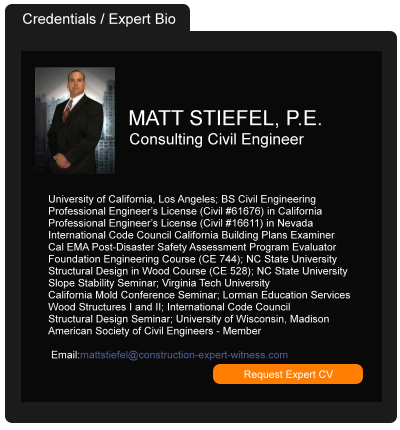Washington Builders Right To Repair Current Law Summary:
Current Law Summary: (SB 5536) The legislature passed a contractor protection bill that reduces contractors' exposure to lawsuits to six years from 12, and gives builders seven "affirmative defenses" to counter defect complaints from homeowners. Claimant must provide notice no later than 45 days before filing action; within 21 days of notice of claim, "construction professional" must serve response; claimant must accept or reject inspection proposal or settlement offer within 30 days; within 14 days following inspection, construction pro must serve written offer to remedy/compromise/settle; claimant can reject all offers; statutes of limitations are tolled until 60 days after period of time during which filing of action is barred under section 3 of the act. This law applies to single-family dwellings and condos.
Building Expert Contractors Licensing
Guidelines Seattle Washington
A license is required for plumbing, and electrical trades. Businesses must register with the Secretary of State.
Association Directory
Local # 4955
335 116th Ave SE
Bellevue, WA 98004
http://www.masterbuildersinfo.com
Seattle Washington Building Expert 10/ 10
Home Builders Association of Kitsap County
Local # 4944
5251 Auto Ctr Way
Bremerton, WA 98312
http://www.kitsaphba.com
Seattle Washington Building Expert 10/ 10
Home Builders Association of Spokane
Local # 4966
5813 E 4th Ave Ste 201
Spokane, WA 99212
http://www.shba.com
Seattle Washington Building Expert 10/ 10
Home Builders Association of North Central
Local # 4957
PO Box 2065
Wenatchee, WA 98801
http://www.nchba.cc
Seattle Washington Building Expert 10/ 10
MBuilders Association of Pierce County
Local # 4977
PO Box 1913 Suite 301
Tacoma, WA 98401
http://www.mbapierce.com
Seattle Washington Building Expert 10/ 10
North Peninsula Builders Association
Local # 4927
PO Box 748
Port Angeles, WA 98362
Seattle Washington Building Expert 10/ 10
Jefferson County Home Builders Association
Local # 4947
PO Box 1399
Port Hadlock, WA 98339
http://www.jeffcohomebuilders.com
Seattle Washington Building Expert 10/ 10
Building Expert News and Information
For Seattle Washington
Texas and Georgia Are Paying the Price for Sprawl
Wilke Fleury Attorneys Awarded Sacramento Business Journal’s Best of the Bar
Environmental Regulatory Provisions Embedded in the Infrastructure Investment and Jobs Act
Comparing Contracts: A Review of the AIA 201 and ConsensusDocs - Part II
Wilke Fleury ranked in Best Lawyers’ Best Law Firms!!
Caltrans Hiring of Inexperienced Chinese Builder for Bay Bridge Expansion Questioned
Banks Rejected by U.S. High Court on Mortgage Securities Suits
New Jersey Judge Declared Arbitrator had no Duty to Disclose Past Contact with Lawyer
New York Appellate Court Restores Insurer’s Right to Seek Pro Rata Allocation of Settlements Between Insured and Uninsured Periods
New York State Trial Court Addresses “Trigger of Coverage” for Asbestos Claims and Other Coverage Issues
New York Court Discusses Evidentiary Standards for Policy Rescission Based on Material Misrepresentation
Delaware District Court Finds CGL Insurer Owes Condo Builder a Duty to Defend Faulty Workmanship Claims — Based on the Subcontractor Exception to the Your Work Exclusion
Economic Loss Doctrine Bars Negligence Claim Against Building Company Owner, Individually
“It Just Didn’t Add Up!”
Contractors: Consult Your Insurance Broker Regarding Your CGL Policy
Landmark San Diego Hotel Settles Defects Suit for $6.4 Million
Insured's Experts Excluded, But Insurer's Motion for Summary Judgment Denied
What to Know Before Building a Guesthouse
Inspectors Hurry to Make Sure Welds Are Right before Bay Bridge Opening
Famed NYC Bridge’s Armor Is Focus of Suit Against French Company
School Board Settles Construction Defect Suit
Faulty Workmanship may be an Occurrence in Indiana CGL Policies
California Supreme Court Holds that Design Immunity Does Not Protect a Public Entity for Failure to Warn of Dangerous Conditions
The National Building Museum’s A-Mazing Showpiece
PAGA Right of Action Not Applicable to Construction Workers Under Collective Bargaining Agreement
DOE Abruptly Cancels $13B Cleanup Award to BWXT-Fluor Team
Texas Jury Awards $5.3 Million to Company Defamed by Union: Could it work in Pennsylvania?
Prevent Costly Curb Box Damage Due on New Construction Projects
Security on Large Construction Projects. The Payment Remedy You Probably Never Heard of
Hunton Insurance Coverage Group Ranked in National Tier 1 by US News & World Report
Fourth Circuit Questions EPA 2020 Clean Water Act 401 Certification Rule Tolling Prohibition
Colorado Abandons the “Completed and Accepted Rule” in Favor of the “Foreseeability Rule” in Determining a Contractor’s Duty to a Third Party After Work Has Been Completed
Balestreri Potocki & Holmes Attorneys Named 2020 Super Lawyers and Rising Star
Construction Contract Provisions that Should Pique Your Interest
Vallagio v. Metropolitan Homes: The Colorado Court of Appeals’ Decision Protecting a Declarant’s Right to Arbitration in Construction Defect Cases
Court Slams the Privette Door on Independent Contractor’s Bodily Injury Claim
Nonparty Discovery in California Arbitration: How to Get What You Want
Insured's Remand of Bad Faith Action Granted
Waiving Workers’ Compensation Immunity for Indemnity: Demystifying a Common and Scary-Looking Contract Term
Personal Guarantor Cannot Escape a Personal Guarantee By…
What to Look for in Subcontractor Warranty Endorsements
Who Says You Can’t Choose between Liquidated Damages or Actual Damages?
Quarter Four a Good One for Luxury Homebuilder
Owners Bound by Arbitration Clause on Roofing Shingles Packaging
Duty to Defend Requires Payments Under Policy's Supplemental Payments Provision
Beyond Inverse Condemnation in Wildfire Litigation: An Oregon Jury Finds Utility Liable for Negligence, Trespass and Nuisance
Condo Building Increasing in Washington D.C.
Questions of Fact Regarding Collapse of Basement Walls Prevent Insurer's Motion for Summary Judgment
Keep It Simple: Summarize (Voluminous Evidence, That Is...)
Prevailing Payment Bond Surety Entitled to Statutory Attorneys’ Fees Even if Defended by Principal


































































